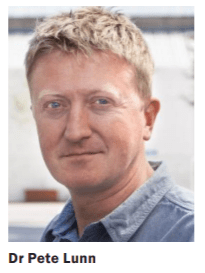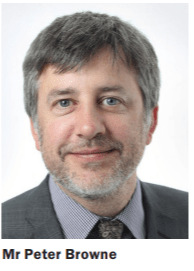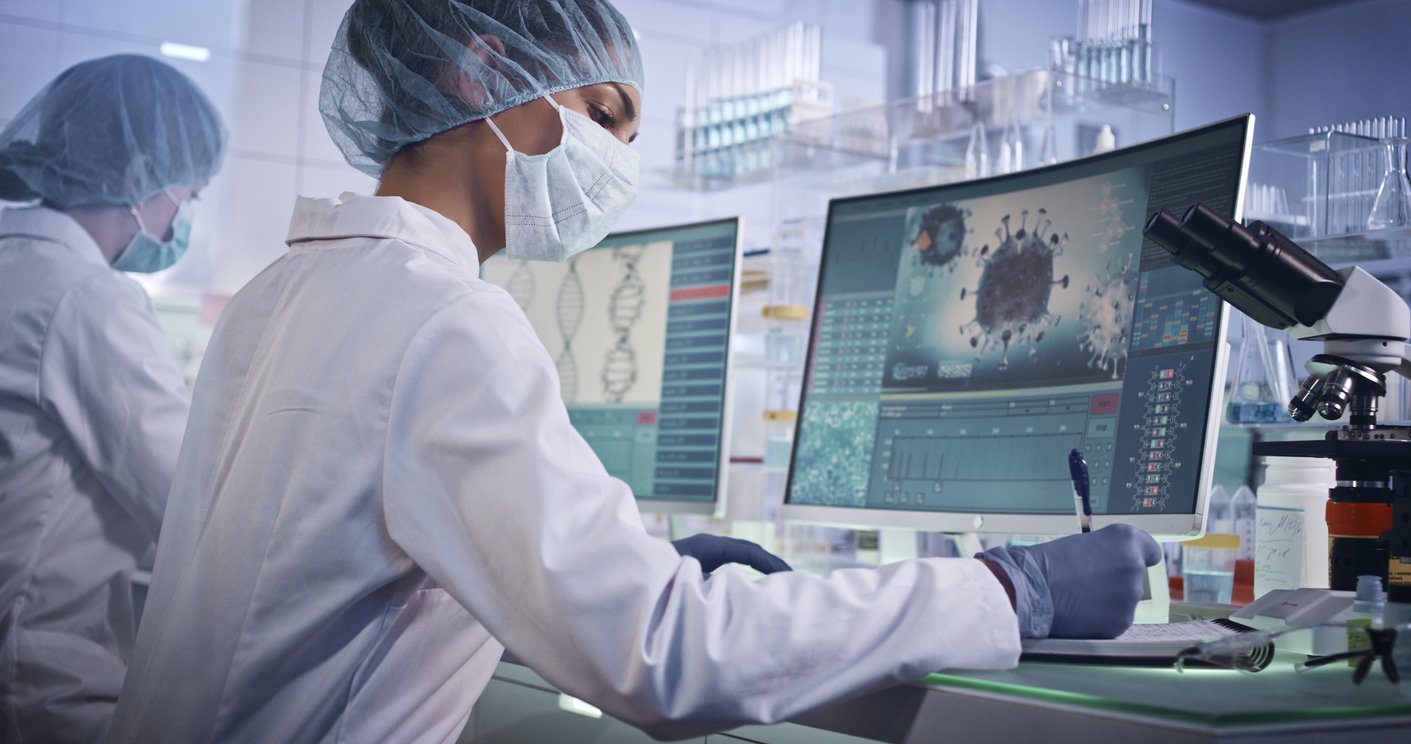Since the beginning of the pandemic, Ireland has played its part in global efforts to understand SARS-CoV-2 and
develop strategies for treatment and prevention. Anna Wedderburn provides an overview of some notable examples
of Irish Covid-19 research to date
Although a small country, Ireland has already made important contributions to research crucial in the fight against the SARS-CoV-2 virus. Irish researchers have participated in global clinical trials and synthesised cohesive reports for the World Health Organisation (WHO), which have formed international guidelines. Ireland has also been commended by the Organisation for Economic Co-operation and Development (OECD) for its research into – and use of – behavioural science.
Global clinical trials
Ireland has been involved in a number of global clinical trial programmes, most of which were set up years in advance for pandemic preparedness. Prof Alistair Nichol, Director of the Health Research Board (HRB)-funded Irish Critical Care – Clinical Trials Network (ICCCTN), told the Medical Independent (MI) about three of the studies the network was involved in: REMAP-CAP, SPRINT-SARI, and GenOMICC.
REMAP-CAP was initiated in 2014, in the wake of the 2009 H1N1 pandemic. It was designed so that “it could pivot in the event of a pandemic to answer pandemic relevant questions”, Prof Nichol said. During non-pandemic times, REMAP-CAP carries out useful clinical research in ICU patients with community-acquired pneumonia, which accounts for a large percentage of sepsis presentations to the ICU. In the face of a novel pandemic, the protocols, legal agreements, ethical approval, and regulatory approvals of REMAP-CAP simply need to be adapted.

This meant that during the Covid-19 pandemic, research could be carried out in a timely manner. “One of the really big, important questions in Covid-19 was, are steroids beneficial or not?,” Prof Nichol said. Hydrocortisone had already been randomised in patients with pneumonia in the REMAP-CAP trial, meaning that almost immediately after Covid-19 was declared a public health emergency of international concern, the REMAP-CAP trial was able to start randomising patients with Covid-19 for hydrocortisone.
Over 9,000 patients have been included in the trial globally so far, with over 16,000 patient randomisations in over 330 hospital sites. In this way, REMAP-CAP is a “highly efficient design”, Prof Nichol said. Studies generally test one intervention at a time before moving on to another, whereas “the design of REMAP-CAP was for a pandemic” and answered multiple questions at the same time.
Overall, REMAP-CAP has determined three treatments that reduce mortality and morbidity in Covid-19 patients in ICU: Hydrocortisone, tocilizumab, and sarilumab, and these results are now part of international guidelines. Alongside this, REMAP-CAP has been able to demonstrate that many treatments were not effective or were even harmful, and therefore are no longer used. Prof Nichol stated that this trial has given “more definitive answers in the last 15 months than I’ve found out in the last five years of my research”.
The SPRINT-SARI concept was initiated seven years ago. It is an observational study of patients presenting to hospital and ICU with severe acute respiratory infection (SARI) symptoms. Again, the ethical approvals were in place for this trial to pivot during a pandemic, and the team behind the study “had been doing a war game one week a year, every year”, Prof Nichol explained. When the pandemic began, they were “able to roll it out immediately”.
From this study, “we were able to describe the patients’ demographics, their symptoms, the treatments, and their length of stay in Irish hospitals”, said Prof Nichol. Up to fortnightly reports of this information were sent out to clinicians about the status of Covid-19 patients in Ireland. There were 400,000 participants in this trial globally, with over 2,000 from Irish hospitals.
Alongside this, REMAP-CAP
has been able to demonstrate
that many treatments were not
effective or were even harmful,
and therefore are no longer used
Finally, GenOMICC, a study led by Edinburgh University, examined genetic factors that make patients more susceptible to critical illnesses such as Covid-19, and which may influence recovery. This study showed for the first time that genetics are important for determining outcomes in ICU patients and was able to point towards potential therapeutic targets based on these genetic discoveries.
Prof Nichol concluded that “these three studies all dovetailed together: SPRINT-SARI collected information on patients so we could describe the pandemic; GenOMICC was able to describe patients with genetically high risk, and identify potential therapeutic targets; and REMAP-CAP could then definitively answer the question of whether the therapeutic agents were effective”.
The WHO Solidarity trial also had participants in Ireland. Prof Joe Eustace, Director of the HRB Clinical Research Facility at University College Cork, led the Irish arm of this trial. Prof Eustace explained that prior to the emergence of the Covid-19 pandemic, the WHO had put together a research and development team to predict which bacteria or viruses may cause future pandemics, and which therapeutics might be used against these potential pandemic-causing pathogens.
This meant that when the Covid-19 pandemic emerged, the WHO already had a good understanding of what type of drugs to trial. Within a few months after the emergence of SARS-CoV-2, the Solidarity trial was set up to examine the effectiveness of hydroxychloroquine, lopinavir, interferon beta, and remdesivir against the novel coronavirus. The Solidarity trial is an adaptive trial, meaning “you’re going to start with your best candidates, do interim reviews, and then if the results aren’t there, you move on to the next best set of candidates”, according to Prof Eustace.
Ireland performed well for its size, contributing 1 per cent to the overall recruitment of the global Solidarity study. Phase one helped identify medicines that did not work, and phase two aims help identify medicines that will go on to save lives. Prof Eustace said “it’s only by everybody coming together working collectively that we can beat a pandemic. That’s the real learning to take from this.”
Evidence
Synthesis Ireland
Evidence synthesis is another important area of research. “Evidence synthesis establishes the overall balance of information on a topic,” Dr Nikita Burke, Programme Manager at Evidence Synthesis Ireland (ESI), told MI. ESI supports individuals to develop practical skills in evidence synthesis methods. This allows them to gather all the evidence surrounding a topic to help others make healthcare decisions, instead of focusing on individual studies or trials which may be controversial or flawed.
ESI was set up in December 2018, and is an all-Ireland initiative funded by the HRB and the Health and Social Care, Research, and Development Division of the Public Health Agency in Northern Ireland. It aims to “build capacity in people” including researchers, clinicians, policymakers, and institutions. This comes in a variety of ways, such as training and education, Fellowships, and public engagement with the aim to “help people to have awareness of what evidence synthesis and systematic reviews are, so that they can find trustworthy evidence and that they can make better informed decisions about their health, or the health of their patients”.
Dr Maguire said that, over
the years, people have asked if
the money the HRB puts into
infrastructure and clinical trials
is necessary. She believes that
Covid-19 has proven that it is
Although a pandemic was not on the minds of those who created ESI, at the beginning of the Covid-19 crisis the Department of Health asked ESI to refocus its resources and team to do high quality systematic reviews on the subject. Dr Burke said this was necessary as “we are in an era of too much information, of overwhelming information”, particularly throughout this pandemic when so much new data was being produced each day.
Dr Burke explained that systematic reviews usually take two years to complete; however, ESI had been investigating “rapid reviews” since its inception. This was of particular relevance during the Covid era. “There’s a balance between the timeliness and time needed, and the quality assurance of the end product,” she said.

During a pandemic it was clear that waiting two years for a systematic review would not be helpful, and so Dr Catherine Houghton and colleagues within the ESI network “got together and in 23 days had the very first Cochrane rapid qualitative evidence synthesis completed and published”, which Dr Burke stated was a “mammoth task”
ESI worked with organisations, such as Cochrane, a trusted source, throughout the pandemic, as it wanted its work to be “of global relevance”. This most certainly was the case, as over the last two years ESI’s work has informed WHO guidelines on many issues. Furthermore, in October 2020, the WHO needed certain questions answered for their clinical guidance. The Organisation approached Cochrane to recommend a group to carry out work on quality assurance.
Following this, the Editor-in-Chief of Cochrane approached ESI and asked it to deliver a product. Within 21 days, Prof Valerie Smith, Prof Declan Devane, Prof Alistair Nichol, and Dr David Roche created a review on care bundles for Covid-19 patients in ICU, and this was “directly as a response to the need by the World Health Organisation, and they included that in their guidelines”, according to Dr Burke.
ESI was also involved in setting up Covid Network Meta Analysis (Covid-NMA), which is a “living map of all of the registered clinical trials on Covid and on the treatment and prevention of Covid” around the world. “So you can go in next week and it’ll be different slightly different to how it was today as it will contain the most up-to-date evidence,” she said. “The World Health Organisation started using that as their primary resource for the treatment for data on treatment and prevention, and we know that the Department of Health in Ireland were using that as well”, Dr Burke said.
Behavioural science
Perhaps one of the less talked about areas of research during this pandemic is behavioural science. Dr Pete Lunn is the
founder and head of the Economic and Social Research Institute’s (ESRI) behavioural research unit, which is a group comprised of eight psychologists and behavioural economists.
In early March 2020, Dr Lunn told the ESRI Director that he wanted his team to “drop everything and write a review of how behavioural science could contribute to the Covid response”, as initially behaviour was the chief means of defence against the SARS-CoV-2 virus.

The Director agreed to this and ESRI funded the review, which was completed within two weeks and provided to the Department of Health. The review included everything from how to encourage handwashing and carry out emergency risk communication at a macro level. Soon after this, Dr Lunn was asked to join the behavioural subgroup of the national public health emergency team.
Going forward, the Department of Health commissioned the ESRI to examine the population response to
the pandemic. Dr Lunn and his team investigated the messages to use to encourage social distancing, self-isolation, and response to various symptoms, and whether decision trees and flow diagrams could be of benefit.
They also pre-tested aspects of the Covid-19 app in regard to data protection information and risk perceptions (which uncovered that people were misinterpreting the difference between being indoors and outdoors in terms of viral spread). Research on vaccination found that misinformation was less important than whether people had absorbed how effective vaccines were.
These experiments by Dr Lunn and his team have “exactly the same structure as a clinical trial” in that people are randomised into groups and presented information in different ways. The participants believe, for example, they are there to give feedback on the information they are shown, but are also asked questions that inform researchers how the information has affected their decision making or planned behaviour. In a summary of one study, Dr Lunn said “we’re randomising different people to see different messages and we’re seeing what impact it has on their plans for the coming week”
This work, alongside other studies on behavioural science, was specifically mentioned by the OECD in a report about the use of behavioural research to tackle the pandemic. All the studies Dr Lunn and his team carried out were published in academic journals.
Funding agencies
Research is key to successful handling of a pandemic but this requires funding. Dr Teresa Maguire, Director of Research and Strategy at the HRB, told MI that the Board “adopted the WHO pandemic response framework”, which states that medical countermeasures, social countermeasures, and population health services measures were all required in response to this virus.
She also highlighted that throughout this pandemic, funding agencies including the HRB had to become “real time” and implement “slick and quick” processes. Covid-19 has demonstrated the importance of investment in infrastructure, Dr Maguire stated. “You can really see how it allows you to react quickly, respond with quality, have a powerful reach, and make a difference both at home and abroad.”
This is evident through the work of REMAP-CAP, Solidarity, and Evidence Synthesis Ireland, which are all either directly funded by the HRB, or were able to take place in Ireland due to the infrastructure the HRB has facilitated. Dr Maguire said that, over the years, people have asked if the money the HRB puts into infrastructure and clinical trials is necessary. She believes that Covid-19 has proven that it is.
“We can all fund project programmes,” Dr Maguire said, “but infrastructure, once you invest in an asset, a national asset, it’s for life.” She pointed out that Ireland is “one of the few countries in Europe” that does not even have a policy position, let alone legislation, on optimising the “sharing, the use, the reuse and the linkage” of data surrounding health and the population. She believes this is essential as currently, “you can’t link where the money goes with the workforce, with the services, with the needs, or with the outcomes.”
Ireland now has a Covid-19 Data Hub set up by the HRB, the Central Statistics Office (CSO) and the Department of Health. Up-to-date data on the Irish Covid-19 cases, tests, and hospitalisations, etc, can be found and accessed by approved researchers. The HRB is also currently in the process of establishing a National Covid Biobank to collect samples and patient information for research purposes.

Dr Maguire hopes that these national hubs will act as a “proof of concept” for other areas outside of infectious disease, once the pandemic has passed, and that the infrastructure set up over the last two years can be scaled up within infectious disease and other areas of research. Alongside the HRB, other funding bodies have also played a role responding to the Covid-19 pandemic. Mr Peter Browne, Director of the Irish Research Council (IRC), told MI that “the research funding agencies, IRC, HRB, Science Foundation Ireland, and Enterprise Ireland, very quickly mobilised to make additional funding available to researchers to respond to the Covid crisis in a very rapid way”, with approximately 60 projects funded as part of the rapid response initiative.
Mr Browne also pointed out that this pandemic has really demonstrated the extent to which our research system is a “national asset”. He highlighted the expertise that the IRC has fostered over the years that has positively impacted the pandemic response. He added “the challenge for Ireland going forward is to continue to retain and develop really world-leading experts in a broad range of fields, so that we can be equipped to deal with crises, national or global, as they arise”.













Leave a Reply
You must be logged in to post a comment.